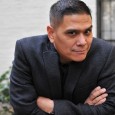My first Pride was in San Francisco in 1991 or 1992. Aretha Franklin was the soundtrack. I ended up on the float for the Box, a big LGBTQ dance club in the Bay Area at the time. I danced the entire time, losing clothing as the blocks went on. For the first time in my 20 years of sissiness, I felt like the center of the world. I didn’t feel awkward or shy. I didn’t need to turn away quickly when I saw someone I was attracted to: no one corrected my speech or gestures for being “too queeny”. For that day, I understood what Aretha was singing about.
And I wanna thank you for helping me see / There’s a power that lives deep inside of me
I came out to a thriving gay bar scene in Oakland: the White Horse, Bellas, Cable’s Reef and the Bench and Bar. The bars seemed huge, full of a broad range of gay men, lesbians, bisexual folks and trans people. I loved the weekly drag nights – where we saw how brilliant our community could be through fashion and performances. (These nights were sometimes also fundraisers to help with funeral costs in the community.) Although everyone attended these shows, there was a dearth of trans-identified people working in our organizations. Trans people were the hosts and stars of our entertainment, but not included in other parts of the HIV and LGBT community’s institutions and advocacy.
Give me the strength (give me the strength) / To carry on (to carry on), always be strong
As we enter Pride season this year, we have to recognize the rampant transphobia that is sweeping the country. Thanks to the work of key trans activists, we are informed of just how many trans women of color get killed in this country each year: we know their names now. In 2019, we cannot feign ignorance.
In the remarkable book The Life and Death of Latisha King, Gayle Salamon notes “the visibility of transpeople has ushered in a new era, one in which their identities are increasingly legible at the same time that there is a transphobic backlash against that visibility… This backlash is weaponizing both visibility and invisibility in order to police, to contest, and to erase the very existence of transpeople.”
In the past couple years, we have seen a massive assault on trans rights throughout the country. From “bathroom bills” to removal of gender identity on government websites to policies that limit trans participation in civic life, education and employment, this administration and their ilk have pushed hard to target the trans community. We need to band together and inform our elected officials and government institutions that we will not stand for this.
At AIDSWatch this past year, I was paired with the folks from TruEvolution since we are both in the mostly overlooked part of California south of LA that reaches to Mexico. While I normally skip the legislator visits, I was reminded by Ernest Hopkins that someone has to speak up about trans rights to these legislators. So in a meeting with my Republican Congressperson, I started with “I know that you do not have much to say on HIV but I want to point out that trans rights are in danger and I want you to know that for many of us in your constituency, we expect you to protect trans rights.” The aide looked surprised and scribbled in his notebook “LGBT constituents concerned with trans rights.”
We have to use every opportunity to speak up. We have to remind each other to step forward to speak when we can. We can donate to trans-led organizations.
This summer, I was enraged and hurt at the transphobia of other academics. One professor put in their syllabus that there would be no preferred gender pronouns in their class; another is against the inclusion of gender identity in the sex education requirement in K-12 public schools because it would “create more transgender children” (or some such nonsense). Clearly, education does not prevent transphobia. (Sometimes I think we want hatred to be the product of ignorance so that we can teach it away.) Even after confrontation, the academics doubled-down on their opinions under the guise of two protections: academic freedom and the first amendment.
I question if that’s what those protections are for – is it truly to shield people in power from consequences or to protect marginalized people from the powerful? I teach and research communication and I know the power of language, that speech is an act. It has an impact.
It is immoral that people do not see trans rights as human rights.
It is monstrous when our elected officials and government agencies choose to attack trans people.
It is shameful when our LGBT, HIV and people of color communities do not stand up for our trans members.
We have to do more. We cannot be ok with a list of names, with the reification of state power that demands parts of our communities suffer, stay invisible and/or be killed. The trans community is more than a litany of names, more than a group of “at risk” or “vulnerable” individuals. In the preface to Black on Both Sides, C. Riley Snorton talks about young Black trans activist Blake Brockington who committed suicide in 2015. Snorton is moved “to consider the conditions in which he would be understood according to his self-definition” – what would that world be like? We need to make places, support the imaginations where trans lives are valued, defended and celebrated.
This Pride, we have to hold our organizations and elected officials accountable in their work with trans people. There are lots of opportunities to support trans artists (like Dylan Edwards and Morgan Boecher), story tellers (like Janet Mock and Laverne Cox) and advocacy groups (like Transgender Law Center, TransLatina Coalition and Trans Justice Funding Project) – let’s get to it.
It’s the (pride) power that gives you / The (pride) strength to survive / Pride - a deeper love








Comments
Comments